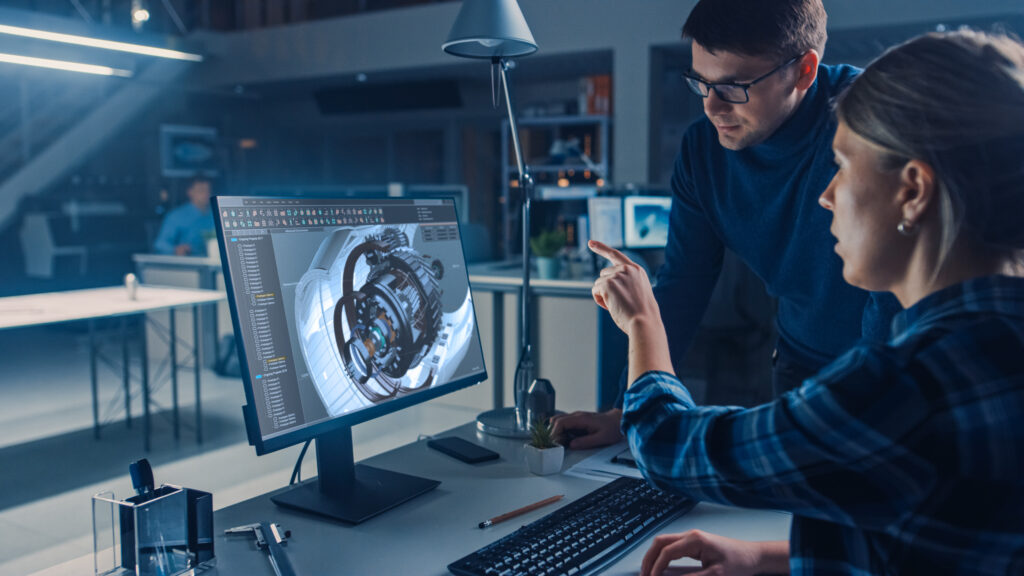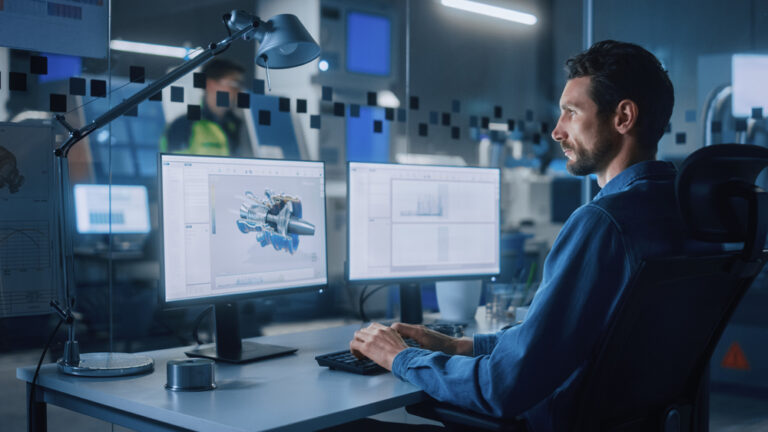In the world of product development, industrial designers play a pivotal role. But what does an industrial designer do? Suppose you’re a DIY enthusiast, budding industrial designer, product manager, or inventor. In that case, understanding the responsibilities and impact of this profession can be a game-changer for your projects.
At Concept 274, we pride ourselves on producing innovative designs for our clients. We understand that developing a new product can be challenging and filled with obstacles and complexities. However, with the expertise of industrial designers, these challenges can be navigated efficiently and effectively.
Understanding the Role of an Industrial Designer
Industrial designers are the creative force behind products’ physical appearance, functionality, and manufacturability. Their work spans various stages of product development, from initial concept to final production. Here’s a closer look at the key responsibilities:
Research and Discovery
The journey begins with research and discovery. Industrial designers conduct user research to gather insights for user-centric design. By understanding the target audience’s needs, preferences, and pain points through surveys, interviews, and focus groups, designers ensure their products truly resonate with users.
Ideation and Concept Generation
At Concept 274, brainstorming and sketching are essential for exploring creative design concepts and generating innovative ideas. During collaborative ideation sessions, no idea is too unconventional. We believe that even the wildest ideas can spark remarkable innovations. Sketching, whether by hand or digital tools, helps visualize and communicate these concepts effectively.
Design Visualization
Once the initial concepts are sketched, the next step involves developing detailed 2D and 3D renderings using CAD (Computer-Aided Design) software. These precise digital models serve as blueprints, guiding the development of the product. Advanced CAD tools allow for meticulous refinement of designs, adding intricate details, surface finishes, and realistic representations.
Design Refinement
The iterative process of improving designs based on user feedback, ergonomic considerations, and aesthetics is crucial. Concept 274 emphasizes the importance of user testing and usability studies to validate design concepts. Ergonomics, the study of how people interact with products, ensures that designs are comfortable and user-friendly. Aesthetics like form, color, and materials are refined to create visually compelling designs.
Material and Finish Selection
Choosing suitable materials and finishes is vital for enhancing product functionality and appeal. Industrial designers at Concept 274 thoroughly research various options, considering factors such as strength, flexibility, weight, and environmental impact. The selected materials and finishes must optimize performance and resonate with the target audience’s aesthetic preferences.
Branding and Visual Language
Developing a solid brand identity is integral to the industrial design process. This includes logo design, color schemes, typography, and visual elements that consistently communicate the brand’s essence. A cohesive brand identity builds trust, evokes emotions, and fosters brand loyalty among the target audience.
Design Documentation
Creating comprehensive design specifications, guidelines, and documentation is essential for accurate implementation. These documents serve as blueprints, outlining the product’s specific requirements, dimensions, materials, and functionalities. Effective communication between designers, engineers, and manufacturers ensures the design vision is accurately realized.
Collaboration and Problem-Solving
One of the unique strengths of Concept 274 is our collaborative approach. We work closely with our client’s engineering teams, bringing a different perspective. This collaboration fosters innovation and ensures that the final product is visually appealing, highly functional, and manufacturable.

The Impact of Industrial Designers on Various Business Functions
The expertise of industrial designers extends beyond product development. Here’s how their contributions impact various business functions:
Customer Service
By creating user-centric designs, industrial designers improve the overall customer experience. Intuitive and aesthetically pleasing products enhance customer satisfaction, leading to positive reviews, repeat business, and brand loyalty.
Human Resources
Incorporating ergonomic principles ensures that products are comfortable and easy to use. This benefits end-users and improves workplace efficiency and satisfaction for employees who interact with these products daily.
Data Analysis
Industrial designers often utilize data-driven insights to inform their design decisions. Analyzing market trends, competitor products, and user feedback helps identify gaps and opportunities for innovation, ensuring that products meet market demands.
Supply Chain Management
Efficient design processes and material selection contribute to optimized supply chain management. By choosing readily available and cost-effective materials, industrial designers help streamline manufacturing processes and reduce lead times.
Marketing
A well-designed product with a strong brand identity is a powerful marketing tool. Industrial designers at Concept 274 work closely with marketing teams to ensure that the product’s visual language aligns with the brand’s messaging, creating a cohesive and compelling market presence.
Why Choose Concept 274 for Your Product Development Needs?
At Concept 274, we understand that the path to launching a new product is filled with challenges. Our team of expert industrial designers is dedicated to turning your ideas into tangible, innovative products that solve real-world problems. We pride ourselves on our ability to collaborate closely with clients, bringing fresh perspectives and creative solutions to the table.
Our network of suppliers allows us to prototype and manufacture parts using various techniques, ensuring that your product is innovative, efficient, and cost-effective. From initial concept to final production, we are committed to delivering designs that look great and perform exceptionally well.
Conclusion
Industrial designers play a crucial role in product development, transforming ideas into tangible, user-centric products. Their expertise spans research, concept generation, design visualization, refinement, material selection, branding, and documentation. At Concept 274, we pride ourselves on our ability to navigate the complexities of product development, delivering innovative solutions that meet the needs of our clients and their customers.
Whether you’re a DIY enthusiast, an aspiring industrial designer, a product manager, or an inventor, understanding the roles and responsibilities of industrial designers can significantly impact the success of your projects.
Ready to take your product development to the next level? Discover how Concept 274 can assist you in achieving your objectives. Visit our website to learn more and contact our team of experts.
Stay updated with our latest projects, insights, and exclusive offers by subscribing to our newsletter. Join us on this exciting journey of innovation and creativity.


